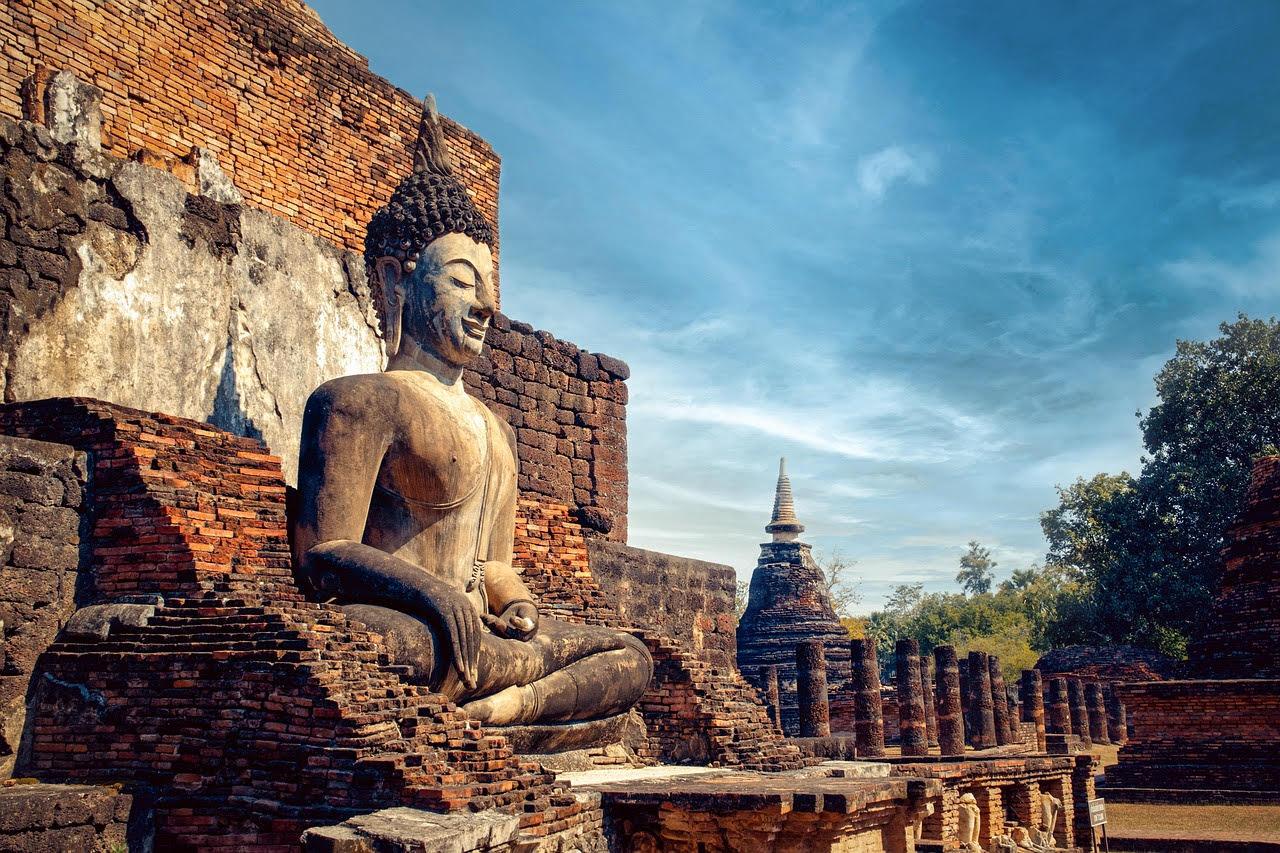
Wat Mahathat in Thailand’s fabulous Sukhothai Historical Park
Thailand is emerging as a leader in Southeast Asia’s tourism evolution, blending sustainability, innovation, and cultural depth to shape the future of travel in a post-pandemic world.
As global travel trends shift towards more meaningful, responsible, and connected experiences, Thailand is poised to lead the way — not only as a beloved destination, but as an innovator and role model in Southeast Asia, says long-time Thailand resident Andrew J. Wood.
With its vibrant cultural heritage, natural beauty, and forward-thinking hospitality sector, Thailand offers travellers the perfect balance of tradition and transformation. As the next decade unfolds, the Kingdom is set to shape and inspire the future of tourism across the region.
Here are 10 key trends I believe will shape tourism in Thailand and Southeast Asia in this new era of travel:
1. Regenerative Travel Begins at the Local Level
Thailand’s evolution beyond sustainable tourism is already underway. From coral restoration in Koh Tao to empowering indigenous weaving communities in Nan, travellers are embracing experiences that restore ecosystems and preserve living heritage.
2. Seamless, Smart, and Contactless Journeys
The Kingdom is investing in cutting-edge infrastructure. Biometrics at airports, smart hotel technology, and digital concierge platforms are transforming the visitor experience — offering smoother, safer, and more personalised travel across the country.
3. Slow Travel in a Fast World
Travellers are trading packed itineraries for purposeful journeys. Whether riding the Eastern & Oriental Express through lush Thai landscapes or drifting through riverside towns along the Chao Phraya, slow travel is on the rise — and Thailand is its ideal setting.
4. Climate-Conscious Travel Options Expand
Eco-awareness is now embedded in Thai tourism. From electric tuk-tuks in Chiang Mai and green-certified resorts in Phuket to low-impact jungle treks in Khao Sok, climate-responsible travel is rapidly becoming the new standard.
5. Virtual Windows into Thai Heritage
Digital platforms and immersive VR experiences are bringing Thai culture to global audiences — from virtual Songkran celebrations to 360-degree temple tours. These innovations serve as invitations, not replacements, encouraging in-person exploration.
6. Senior Travel Comes of Age
Thailand’s growing appeal as a wellness and retirement destination is undeniable. The Kingdom offers senior travellers long-stay retreats, spa holidays, cultural excursions, and access to world-class medical care — all in a warm, welcoming environment.
7. A New Grand Tour Through Southeast Asia
Thailand is the heart of a modern Grand Tour. Younger travellers are immersing themselves in the region — learning Thai cooking in Chiang Mai, studying Buddhism in Ubon Ratchathani, or volunteering on eco-farms in Isaan. Travel becomes a path to personal growth.
8. Seamless Regional Travel Across Southeast Asia
Thailand is playing a pivotal role in regional connectivity. Enhanced infrastructure, digital nomad visas, and ASEAN travel corridors are enabling cross-border experiences — by rail, road, or air — making the region more accessible than ever before.
9. Rising Stars Beyond the Beaten Path
To ease pressure on well-known destinations, the Tourism Authority of Thailand (TAT) is highlighting hidden gems such as Nakhon Si Thammarat, Loei, and Trang. Across Southeast Asia, decentralised tourism is gaining traction as travellers seek authenticity and tranquillity.
10. Travel as a Personal Expression of Values
Today’s travellers seek more than a getaway — they seek alignment with their values. Thailand answers this call: from wellness in Chiang Rai and ethical elephant sanctuaries in Chiang Mai to plant-based cuisine in Bangkok, the Kingdom offers travel with meaning.
Conclusion
Thailand, my home for three decades, is more than a destination — it is a vision for the future of tourism in Southeast Asia.
By embracing sustainability, innovation, inclusivity, and community, the Kingdom invites the world to explore a deeper, more purposeful way to travel.